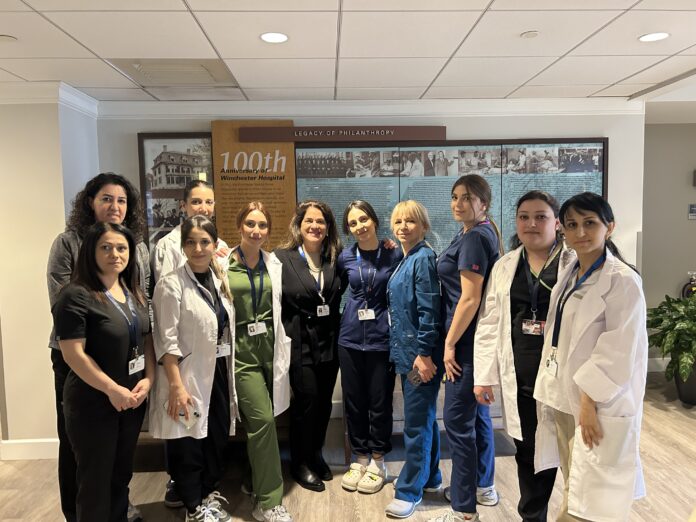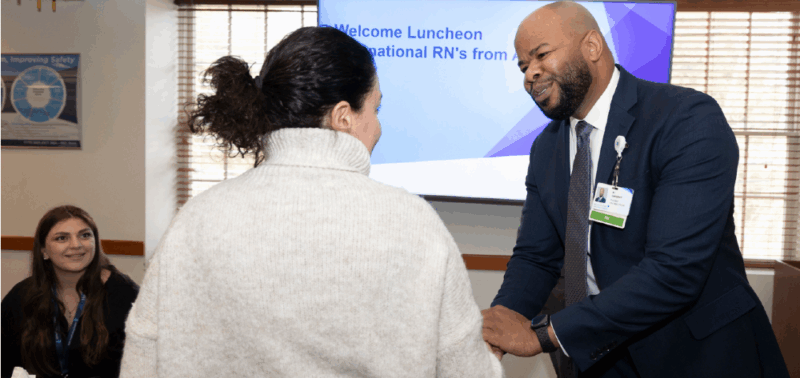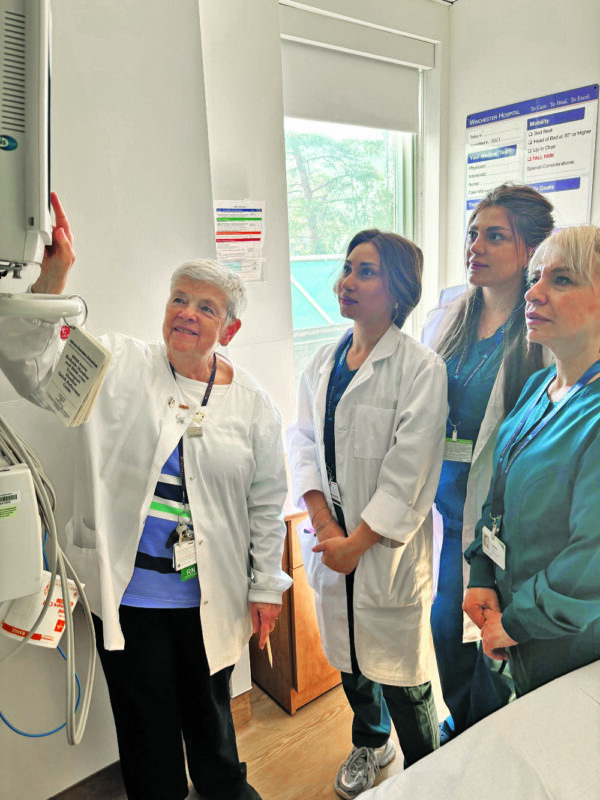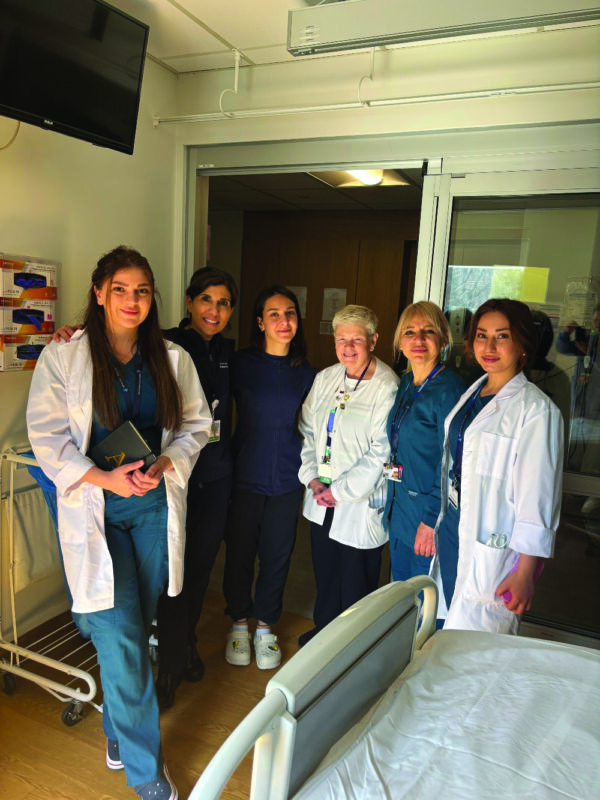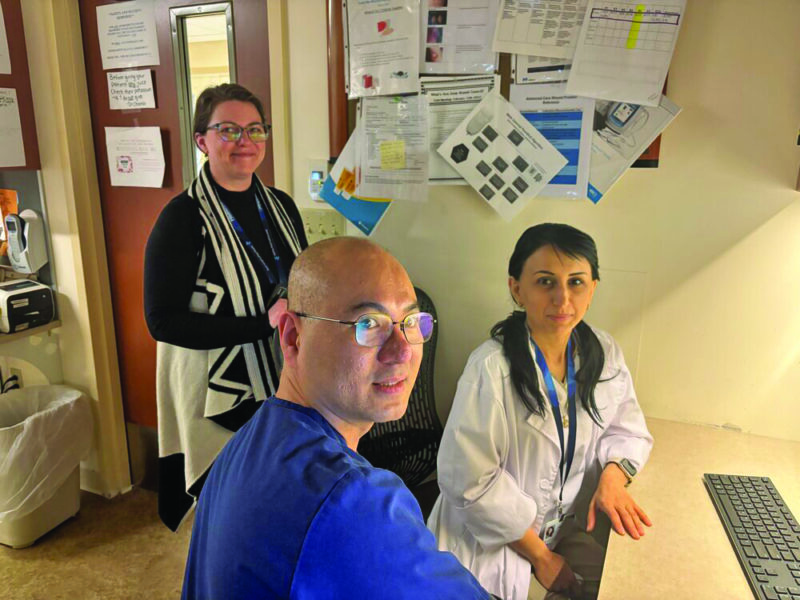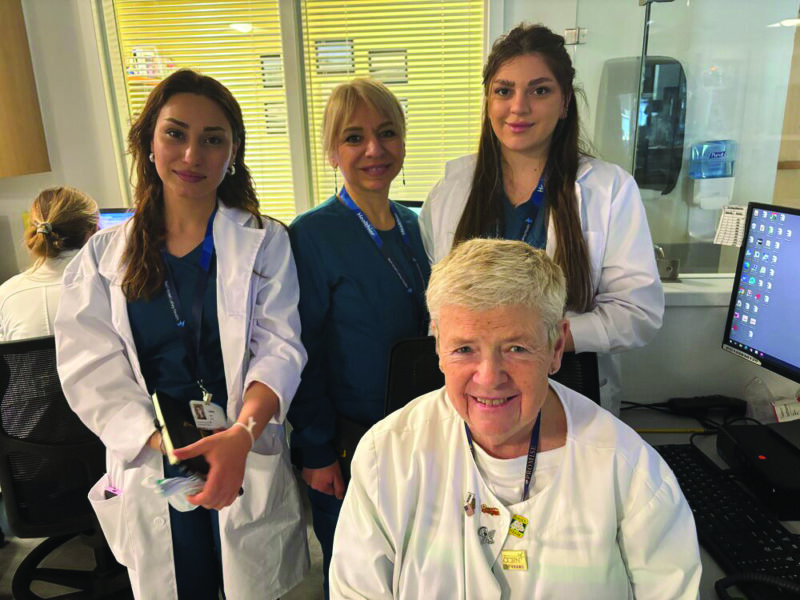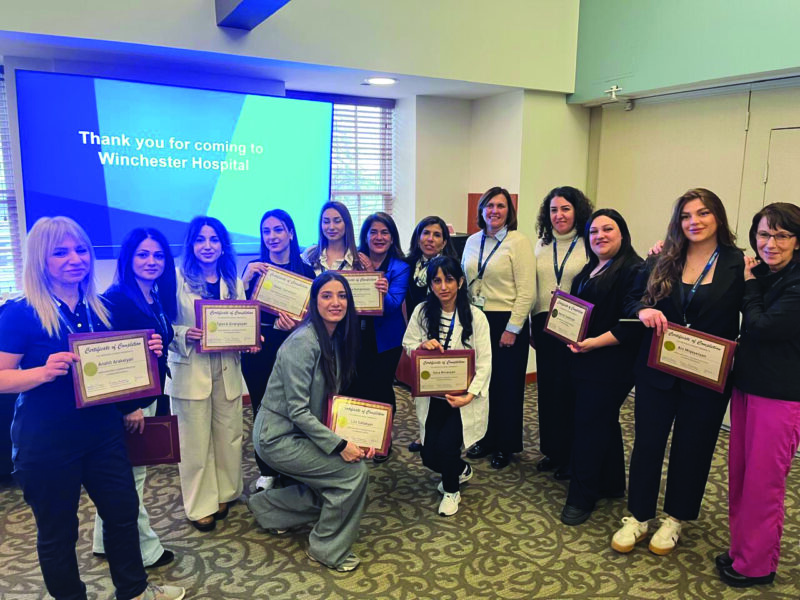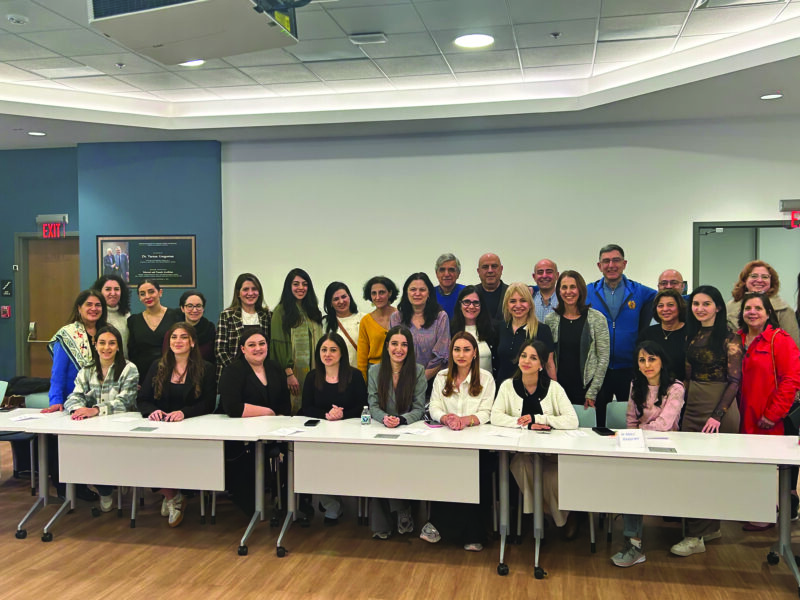WINCHESTER, Mass. — Nine nursing students from Armenia, together with their instructor, spent two weeks in March at Winchester Hospital in a practicum as part of their training to become the first class of nurses to obtain a Bachelor of Science in Nursing degree in Armenia.
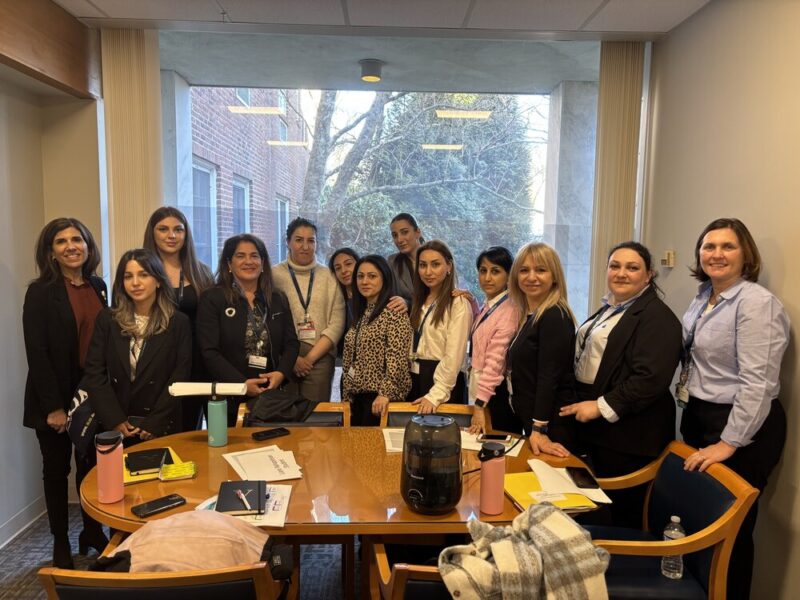
The American University of Armenia (AUA) established the first Bachelor of Science in Nursing (BSN) program in the country in the fall of 2022, designed for nurses with diplomas in nursing or midwifery who want to advance their skills and education. Dr. Nancy Arousiag Barsamian, an assistant professor at the University of Massachusetts Chan Medical School Tan Chingfen Graduate School of Nursing, explained that AUA soon realized that as part of their training, its students needed to be able to apply what they were learning in a suitable workplace setting or a healthcare system, but that setting does not exist in Armenia currently.
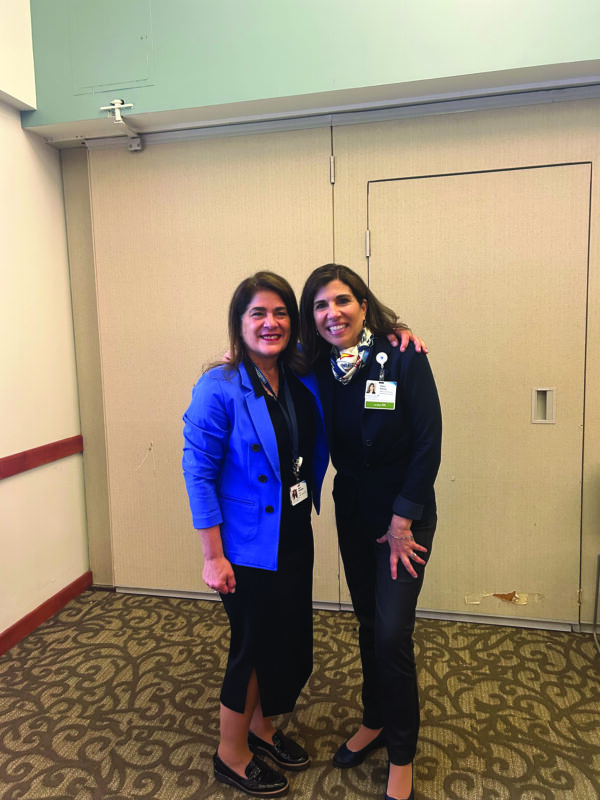
The inaugural class of ten nursing students was set to go to Beirut in fall 2024 for this purpose, but the Israeli invasion of the country and the broader war in the region had escalated while their host institution, the American University of Beirut (AUB) Medical Center, had to deal with the injured from across the country. Consequently, for safety and other considerations, a different location was necessary, Barsamian said. As the students were to graduate this academic year (2026), there was not much time left to make arrangements.
Barsamian is an adjunct professor at AUA, so she was teaching a course there and she also serves as a mentor/preceptor to a couple of the students working on their capstone projects. The university told her of the situation, and she offered to find a suitable location. Back in Boston, Winchester Hospital, part of the Beth Israel Lahey Health healthcare system, hosted the Armenian American Medical Association (AAMA) and Armenia healthcare providers of Boston for a networking event in early September 2024 to explore the Armenian healthcare field and possibilities for collaboration.
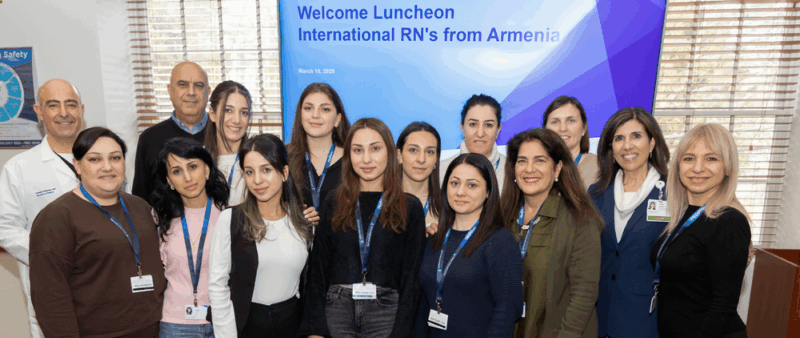
When Karen Keaney, Chief Nursing Officer and Vice President of Patient Care Services at Winchester Hospital, found out that Winchester President Al Campbell was going to this event, Keaney said that she told Campbell she wanted to go too because she was Armenian. There the two spoke with a number of people, including Barsamian, about clinical rotations for nursing students from Armenia.
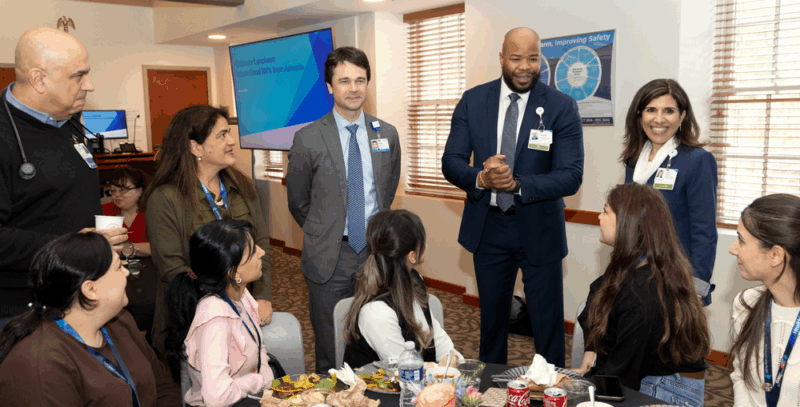
Soon, a series of weekly virtual meetings began in October of a group including Keaney, Winchester Executive Director of Human Resources Beth Taylor, Winchester Clinical Educator Josephine Keane, Barsamian, AUA lecturer Vicky Hergelian, and Nour Alayan, associate professor and the inaugural chair of the Nursing Program at the Turpanjian College of Health Sciences at AUA.



